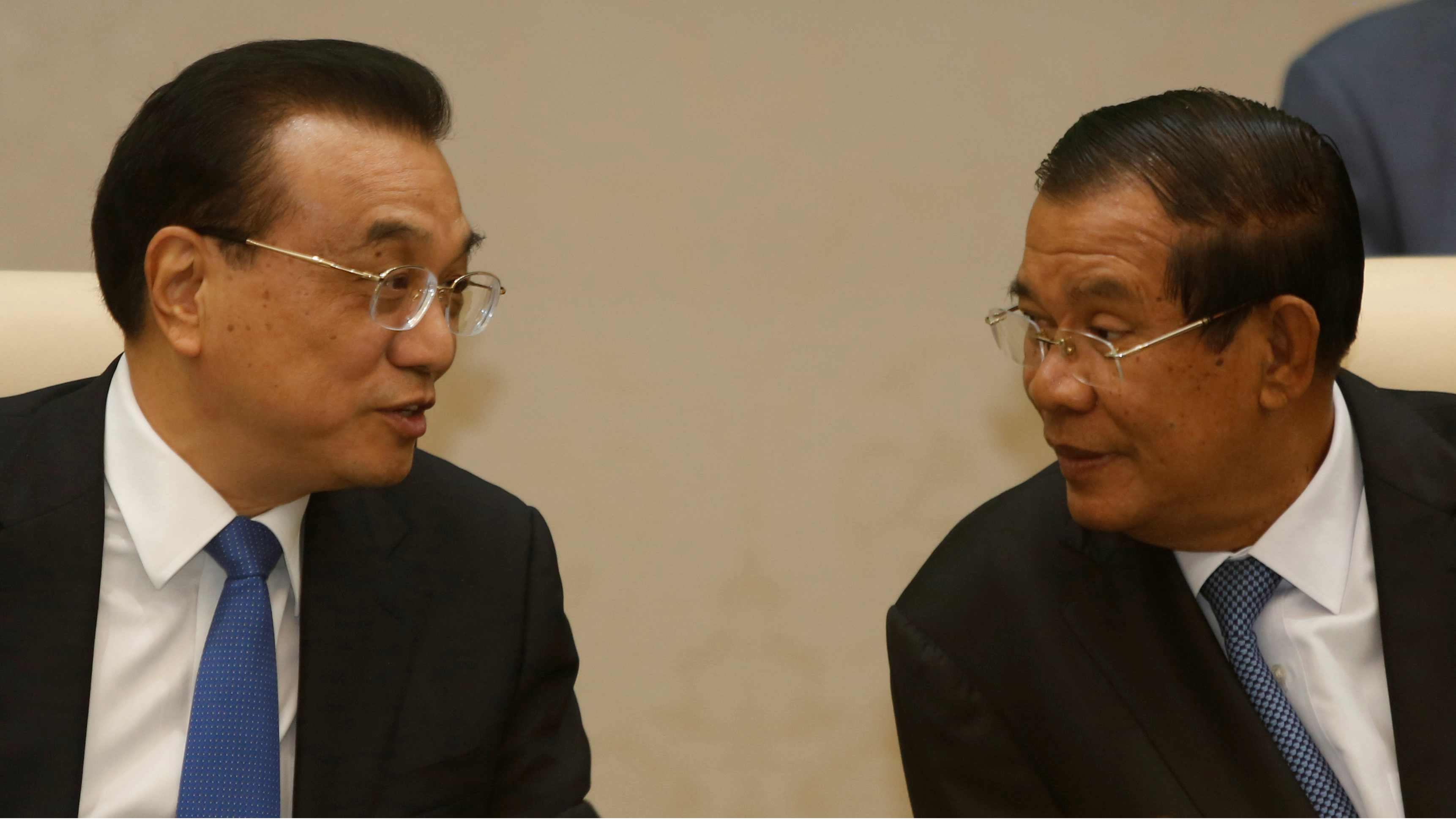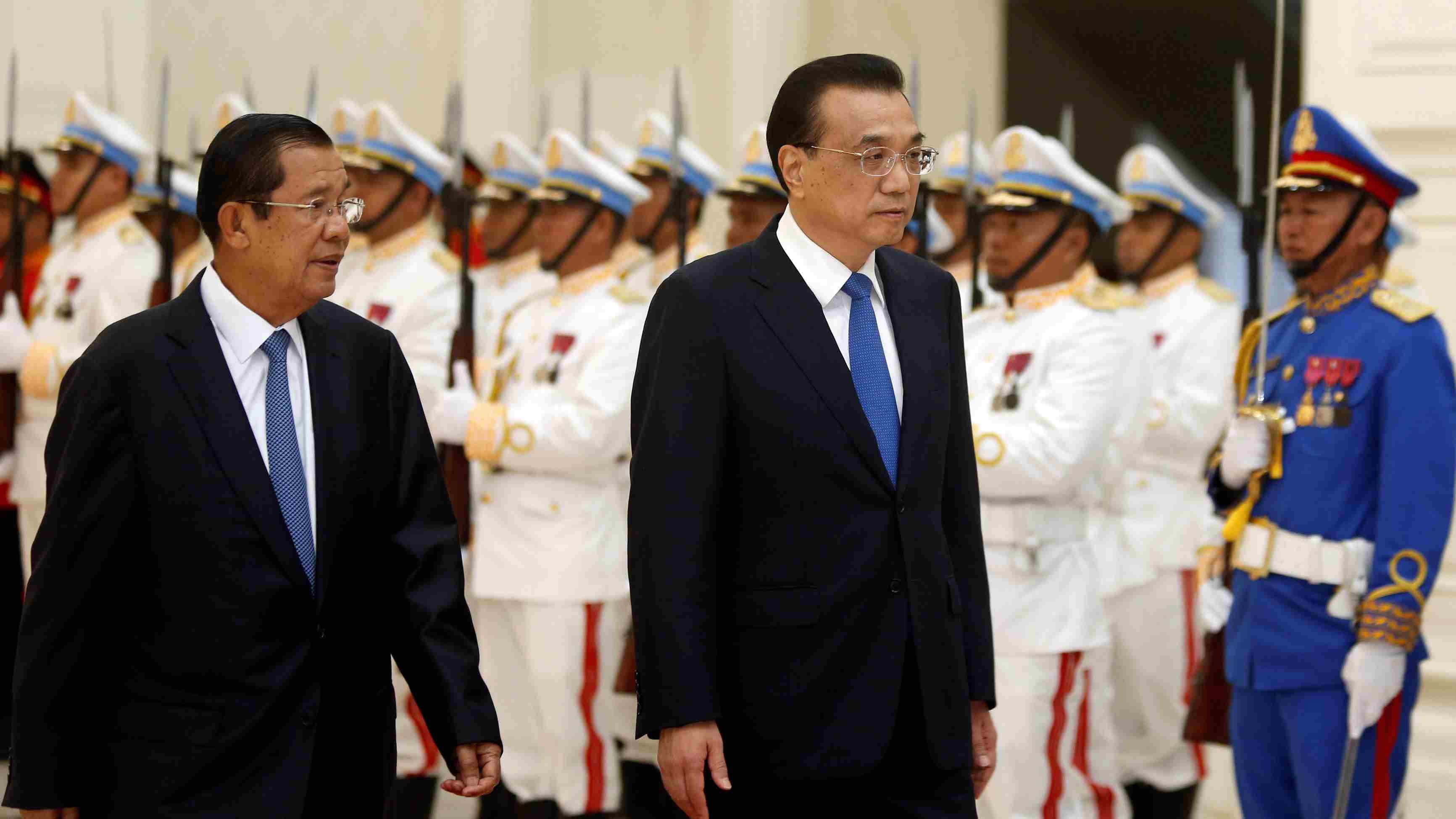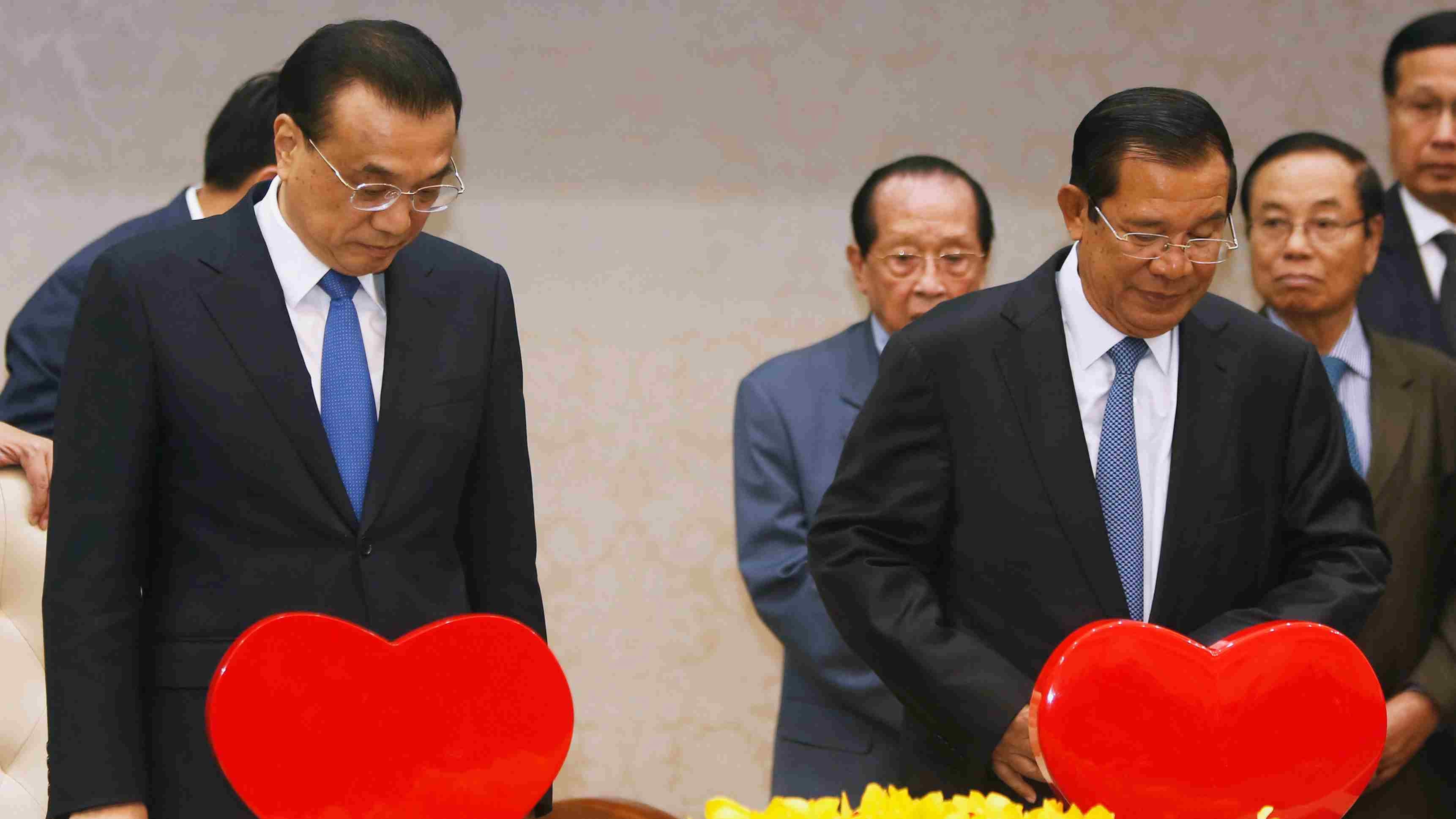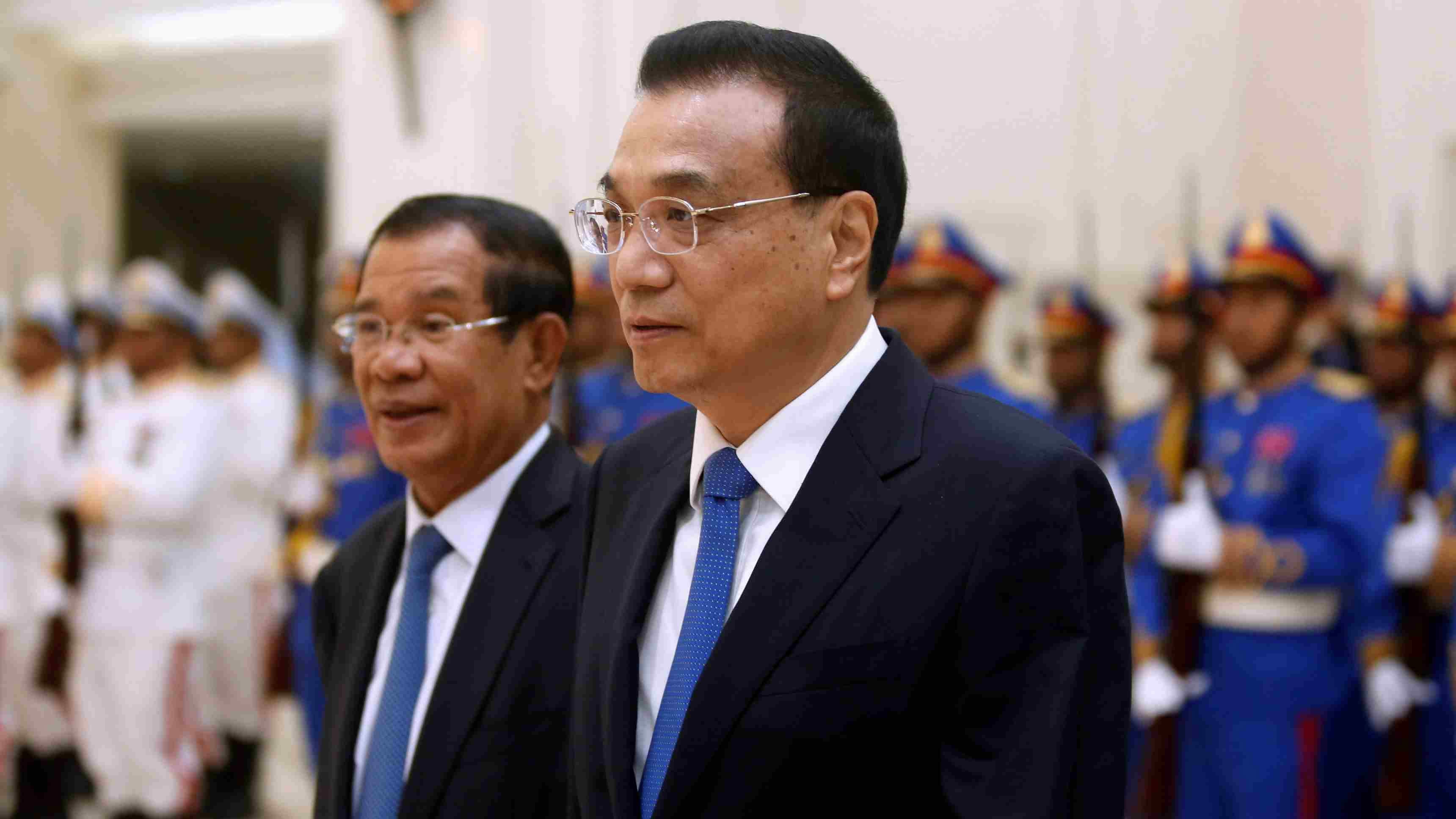
China
18:13, 11-Jan-2018
China, Cambodia eye S. China Sea code of conduct
By Martin Lowe

Chinese Premier Li Keqiang met Cambodia's Prime Minister Hun Sen on Thursday, following a two-day summit of the Lancang-Mekong Cooperation organization, a body set-up by China in 2015 to safeguard the future of the Mekong River.
A number of achievements have been made during Li’s time in Cambodia.
Maritime code of conduct
China and Cambodia on Thursday jointly called on the parties involved to adopt at an early date a code of conduct on the South China Sea, which has been subject to territorial disputes between regional powers including China, Vietnam and the Philippines.
The two sides issued the call in a joint communique released after Li concluded his official visit.
Both countries are delighted to see that the situation in the South China Sea is calm and continues to improve, said the communique.

Chinese Premier Li Keqiang and Cambodian Prime Minister Hun Sen review an honor guard in Phnom Penh, Cambodia, January 11, 2018. /Reuters Photo
Chinese Premier Li Keqiang and Cambodian Prime Minister Hun Sen review an honor guard in Phnom Penh, Cambodia, January 11, 2018. /Reuters Photo
It urged related parties to comprehensively and effectively implement the Declaration on the Conduct (DOC) of Parties in the South China Sea, deepen maritime cooperation, as well as to promote consultations on the texts of the code of conduct in an effort to adopt the document at an early date based on negotiated consensus.
The DOC, signed here in 2002 by China and the Association of Southeast Asian Nations member states, stipulates that the parties concerned shall resolve their territorial and jurisdictional disputes by peaceful means, friendly consultations and negotiations by sovereign states directly concerned.
More aid and investment pacts signed
New aid and investment pacts worth billions of US dollars have also been announced between China and Cambodia.
A total of 19 deals were signed by Premier Li and Hun Sen in Cambodia’s capital Phnom Penh.
Highlights included a Chinese loan to build a new airport at the tourist city of Siem Reap, home of the famous Angkor Wat temple, and a joint agreement to launch Cambodia’s first communications satellite.
There will also be Chinese finance to construct a 200-kilometer highway from Phnom Penh to Sihanoukville in Cambodia’s south, already a hub of Chinese investment.

Chinese Premier Li Keqiang and Cambodian Prime Minister Hun Sen stand in front of two hearts as they hold bilateral talks in Phnom Penh, Cambodia, January 11, 2018. /Reuters Photo
Chinese Premier Li Keqiang and Cambodian Prime Minister Hun Sen stand in front of two hearts as they hold bilateral talks in Phnom Penh, Cambodia, January 11, 2018. /Reuters Photo
China is the biggest foreign investor in Cambodia and the largest provider of aid. Relations, which have always been friendly, were taken to a new level when Chinese President Xi Jinping visited here in 2016.
Premier Li said that heralded the start of a new relationship. 2018 marks 60 years of diplomatic ties between the two nations.
Chinese investment in Cambodia by late 2017 had reached 12.5 billion US dollars, around 36 percent of all investment in the country.
“In the last 20 years, our economy and GDP has maintained a steady growth of 7 per cent plus, and it’s come from foreign direct investment from China,” said Cambodian government spokesman Siphan Phay.
The two countries have set a target of bilateral trade worth six billion US dollars a year by 2020.

Chinese Premier Li Keqiang and Cambodian Prime Minister Hun Sen review an honor guard in Phnom Penh, January 11, 2018. /Reuters Photo
Chinese Premier Li Keqiang and Cambodian Prime Minister Hun Sen review an honor guard in Phnom Penh, January 11, 2018. /Reuters Photo
Aid provided by Beijing totals around 250 million dollars a year, much of it going on infrastructure projects such as roads, bridges, irrigation and electrical transmission, in line with China’s Belt and Road policy.
In Phnom Penh, China has donated 100 buses to help with public transport. Each carries the words “A gift from China” on the side.
Chinese doctors have performed free eye operations helping improve the sight of thousands of Cambodians. China also offers scholarships for students to study in Beijing and other Chinese cities.
(With inputs from Xinhua)
3350km

SITEMAP
Copyright © 2018 CGTN. Beijing ICP prepared NO.16065310-3
Copyright © 2018 CGTN. Beijing ICP prepared NO.16065310-3